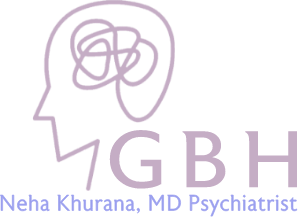Depression Therapy and Mood Disorders Treatment in Norcross, GA
Get Trusted Depression Therapist and Mood Disorder Treatment in Norcross, Georgia
At Georgia Behavioral Health, our experienced depression therapists in Norcross, GA, offer compassionate, evidence-based care to help individuals manage depression and mood disorders effectively, empowering them to regain control of their lives.
We provide personalized depression and mood disorder treatment and therapy plans tailored to each patient’s unique needs, combining therapy, counseling, and supportive resources to address emotional, behavioral, and cognitive challenges.
Schedule your appointment or call us today to get your mood disorder treatment from one of the best depression therapists in Norcross, Georgia and improve your emotional and behavioral health.
Share your problems with us, don't keep it to yourself
We proudly serve communities of Norcross, Johns Creek, Duluth, Atlanta, Peachtree Corners, and nearby areas of Gwinnett County.
What is Depression?
Depression is a serious mental health condition that goes beyond temporary sadness. It can cause persistent feelings of hopelessness, low energy, and a lack of interest in daily activities. Depression is treatable, and with the right care, individuals can experience significant improvement in their mood and daily functioning.
Signs & Symptoms of Depression
- Persistent sadness or emptiness
- Loss of interest in hobbies and activities
- Fatigue or low energy
- Changes in sleep patterns (insomnia or excessive sleeping)
- Difficulty concentrating or making decisions
- Feelings of worthlessness or guilt
- Changes in appetite and weight
- Physical aches and pains with no medical cause
- Thoughts of death or suicide
Understanding Bipolar Disorder
Bipolar disorder is a mood disorder characterized by alternating episodes of mania (elevated mood, impulsivity, increased energy) and depression (low mood, fatigue, difficulty concentrating). These mood swings can disrupt daily life and relationships, making professional treatment essential.
Signs & Symptoms of Bipolar Disorder
- Manic episodes: Elevated mood, racing thoughts, impulsive behavior, and reduced need for sleep.
- Depressive episodes: Persistent sadness, low energy, and difficulty functioning in daily life.
- Mixed episodes: A combination of manic and depressive symptoms occurring together.
What Are Mood Disorders?
Mood disorders, including depression and bipolar disorder, affect how a person feels, thinks, and interacts with the world. These conditions can lead to persistent sadness, mood swings, loss of motivation, or extreme emotional highs and lows. Left untreated, mood disorders can disrupt relationships, work, and overall quality of life.
Causes & Risk Factors for Mood Disorders
- Biological Factors: Imbalances in brain chemicals like serotonin and dopamine.
- Genetic Predisposition: A family history of mood disorders can increase the risk.
- Environmental Stressors: Trauma, loss, financial difficulties, or major life changes.
- Medical Conditions: Chronic illness, hormonal imbalances, and certain medications.
- Psychological Factors: Negative thought patterns, unresolved trauma, or low self-esteem.
Understanding the root cause of mood disorders can help guide effective treatment plans for long-term recovery. Whether you’re struggling with major depression, bipolar disorder, or chronic mood swings, our mood disorder treatment in Georgia is designed to help you regain balance and emotional well-being.
How We Treat Depression & Mood Disorders at Georgia Behavioral Health
We provide personalized, evidence-based depression and mood disorders treatment & Therapy plans tailored to each individual’s needs. Our approach includes:
1. Therapy & Counseling
- Cognitive Behavioral Therapy (CBT): Helps reframe negative thought patterns and develop healthier coping strategies.
- Dialectical Behavior Therapy (DBT): Teaches emotional regulation and distress tolerance skills.
- Psychodynamic Therapy: Explores past experiences and their impact on emotions and behaviors.
- Supportive Therapy: Offers a compassionate space to process emotions and improve mental well-being.
2. Medication Management
For moderate to severe depression or bipolar disorder, medication can be an essential part of treatment. Our psychiatric team provides:
- Antidepressants (SSRIs, SNRIs, atypical antidepressants)
- Mood stabilizers for bipolar disorder
- Ongoing medication adjustments & monitoring
3. Advanced Treatments for Depression
For those with treatment-resistant depression, we offer cutting-edge therapies, including:
These advanced treatments offer new hope for individuals who haven’t found relief with traditional therapies.
If you are looking for a trusted mood disorder or depression therapist in Norcross, Georgia? Contact Georgia Behavioral Health today to begin your journey toward lasting mental health.
